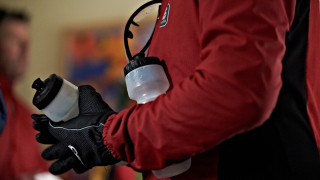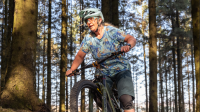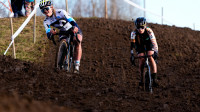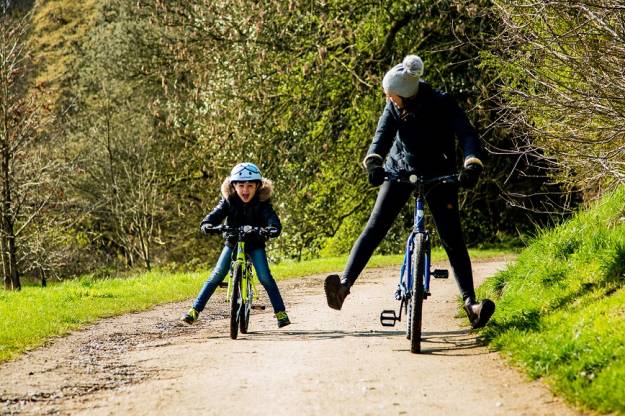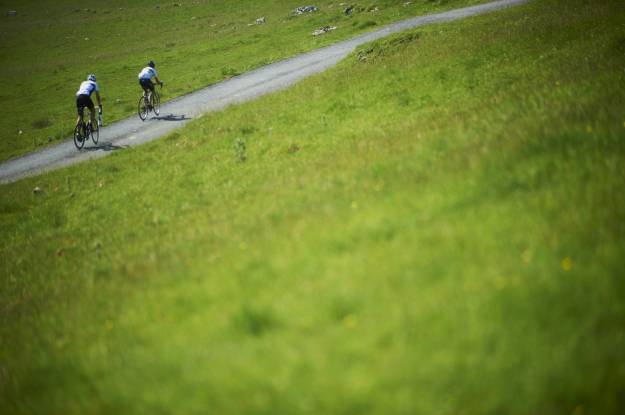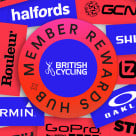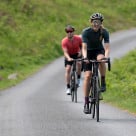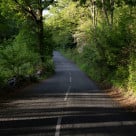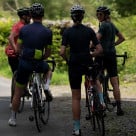Knowledge Level: Beginner
Whether you’re training, tackling a sportive, riding a multi-day epic or racing, if you’re not keeping hydrated you’ll be compromising your performance, limiting training gains and prolonging the recovery process.
With the human body composed of approximately 60% water, it should be no surprise that you need to keep it topped up with fluid to perform optimally. Follow these tips from Healthspan Elite, the Official Sports Nutrition Partner and Official Vitamin and Supplement Partner to the Great Britain Cycling Team and British Cycling.
Reduced performance
Studies have shown that surprisingly low fluid losses can significantly affect your ability to ride. A 2% drop in body weight due to sweating (1.6 kg for an 80 kg rider) will impair performance noticeably, 4% will decrease your capacity for muscular work and, at 5%, heat exhaustion can become an issue and your capacity for work will drop by up to 30%. Hit 7% and you’ll start experiencing hallucinations and, at 10%, circulatory collapse, heat stroke and even death become possibilities.
The physiological reasons for performance losses due to dehydration are:
- Reduction in blood volume
- Decreased skin blood flow
- Decreased sweat rate
- Decreased heat dissipation
- Increased core temperature
- Increased rate of muscle glycogen use
- Decreased digestive function
Monitoring hydration
Weigh yourself daily and, especially if you’re already fairly lean, sudden significant drops in weight probably suggests that you should increase your fluid intake. You can also monitor the colour of your urine using charts such as this.
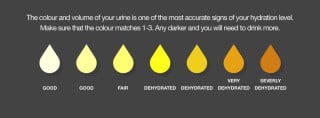
Daily drinking
Before considering what, when and how much to drink on the bike, making sure you stay well hydrated all the time will mean maintaining optimal hydration levels when riding will be far easier. Monitor your hydration levels using the techniques above and try to drink 2-3 litres of fluids a day whether you’re riding or not. Fruit and vegetable juices, sports drinks, water and even tea and coffee all count towards this target.
What about before a ride?
If you’ve been monitoring and keeping on top of your day-to-day hydration, there should be no need to drink excessively the night before or in the hours leading up to a ride. If you drink excessive amounts in a forlorn hope of playing hydration catch up you’ll only succeed in guaranteeing early and numerous “comfort breaks”. In the two hours leading up to a long ride, tough training session or race, sip on 500-750 ml of electrolyte drink.
How much to drink on the bike
The best way to obtain an estimate of how much fluid you need to drink is to conduct a 60-minute sweat test. Having hydrated well during the day, weigh yourself in the nude and note your weight down.
Go out and ride your normal sportive or racing intensity for 60 minutes and don’t drink during the ride. As soon as you get home, strip off, towel off any sweat from your skin and weigh yourself again. The difference in the two weights in grams will equate to total fluid losses in millilitres.
Obviously the results will vary according to weather conditions and riding intensity and you may want to perform several tests to get a range of readings but it will still give you a good idea. Most riders will find that they will typically lose 500-1000 ml per hour. Especially if you’re at the upper end of this range, it might not be practical or necessary to try and replace it all but you should aim for a minimum of 75%.
When to drink on the bike
The key point to remember is not to wait until you’re thirsty but to drink little and often right from the start of your ride. Aim to take 2-3 good sized gulps from your bottle every 10-15 minutes right from the moment you roll off.
Just like eating on the bike, you’re not drinking for that moment but 10-20 miles down the road. Don’t forget your protein drink at the end of a long ride either. No matter how careful you’ve been with your hydration, especially on a hot day, you’re likely to be dehydrated and, as well as providing the protein to kick start your recovery, the fluids and electrolytes that a recovery drink provides are essential.
What to drink on the bike
For rides of under 60 minutes, plain water is fine but, for longer rides or in hot conditions you’ll want to add electrolytes. Plain water can cause you to feel bloated and will reduce your desire to drink before fluid losses have been replaced.
Electrolytes are salts that include sodium, potassium, calcium and magnesium. They are lost in sweat, are essential for normal cellular function and have to be replaced. Most commercially available sports drinks have the correct balance of electrolytes and, if you don’t want to use drinking to take on calories, effervescent electrolyte tablets, such as Elite Activ Hydrate, without any carbohydrates are also available.
For longer rides, it makes sense to combine drinking with calorie intake. Remember, for a sportive or long training ride, you’re aiming for 0.5-1g of carbohydrates per kilogram of bodyweight per hour and should aim to spread that over 2-3 micro feeds every 20-30 minutes. 500 ml of typical sports drink mixed at 6% will give you around 36 g of carbohydrate which, for an 80 kg rider requiring 40-80 g per hour, is a decent and easy to take on proportion of that energy requirement.
What’s important is to experiment with what you drink in training to find a product that you tolerate well.
Can I drink too much?
You can definitely drink too much water and, if you’re not also taking on adequate electrolytes, you’ll effectively dilute and affect the balance of your body’s fluids. This can lead to a feeling of being bloated, reduced performance and, in extreme cases of hyponatremia, even death. Cases of this have been seen in recent years at big city centre marathons where runners, worried by constant reminders of the importance of staying hydrated, have drunk excessively before the event and taken plain water on at every single aid station. Remember, as well as replacing lost fluid, you also have to replace lost electrolytes too.
What about cramp?
Many riders who have suffered cramp during a long training ride, sportive or race, blame poor hydration and a lack of electrolyte intake for their painful demise but recent studies have indicated that this isn’t always the case. For such a common occurrence it might surprise you to know that the exact reason for cramping is still unknown.
Many people blame inadequate hydration or electrolyte levels and, although some studies have shown that consuming a 6% carbohydrate sports drink can help prevent them, other studies have failed to back this up and, recent work with Ironman triathletes found no link at all. Some studies of long term sufferers of cramp have shown magnesium supplementation to be helpful.
Probably the biggest factor is a sudden increase in exercise intensity. So, if you ride harder or longer than you’re used to, you can expect to cramp. However, exercise intensity can’t be the only factor as it doesn’t explain night cramps.
Anecdotal evidence also suggests that stretching can help to alleviate cramp and that regular stretching can help prevent cramp in muscles that are prone to it or that have previously been injured. If you are regularly suffering from cramp on your rides, we’d suggest a covering all bases approach.
- Ease back on your pace and/or distance. Check you threshold power or heart rate, find your training zones and ride strictly to them. If you’re out for a long ride this should mean spending the majority of the time in Zone 2. Don’t suddenly ramp up time, distance or climbing. Follow a structured training plan that builds in a gradual progressive way like the British Cycling Training Plans.
- Take on fluids containing electrolytes continually throughout your ride. Even in cooler conditions aim to take on 500-750 ml per hour.
- Work on your mobility using this routine.
- Eat foods rich in magnesium and calcium and, if necessary, consider magnesium supplementation such as Elite Magnesium Plus.

